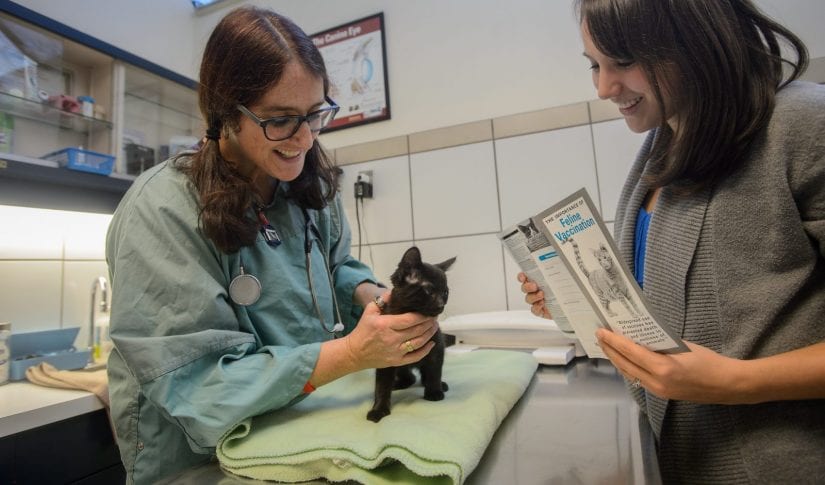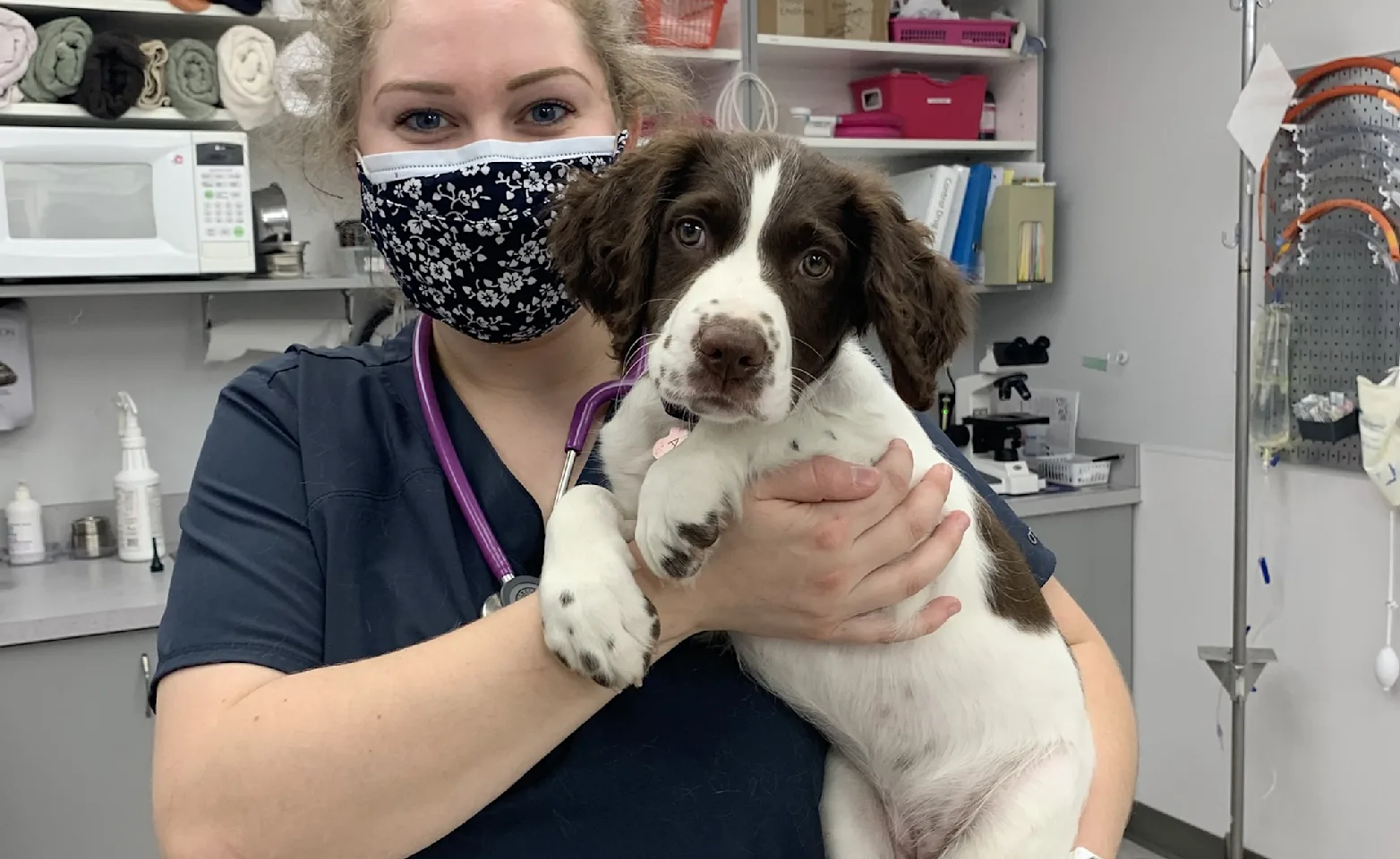A closer look at the role of modern Veterinary medicine
Wiki Article
Exactly How a Veterinary Specialty Hospital Can Treat Your Pet's Conditions With Advanced Techniques
Veterinary specialty hospitals play an essential function in resolving complex health and wellness concerns in animals. They use advanced techniques and technologies that boost medical diagnosis and treatment. With access to specialized solutions, pet dog proprietors can locate tailored services for their pets' disorders. This raises essential concerns regarding the particular approaches employed and the advantages they offer. Comprehending these components can especially impact an animal's recovery journey.Comprehending the Function of Veterinary Specialty Hospitals
Although health care vets provide essential solutions for pet health and wellness, vet specialty hospitals play an essential function in attending to complicated medical conditions that require advanced diagnostics and therapy. These facilities are equipped with specialized modern technology and skilled experts who concentrate on details locations of veterinary medicine, such as oncology, neurology, and cardiology.Veterinary specialty hospitals facilitate a joint technique, typically operating in conjunction with a pet dog's main veterinarian to develop detailed treatment plans. They give accessibility to innovative imaging strategies, such as MRI and CT checks, which are not normally offered in common centers. In enhancement, these hospitals offer extensive care devices for critically ill pet dogs, ensuring day-and-night tracking and assistance.
Specialized Services Supplied by Veterinary Specialists
Veterinary experts offer important solutions that enhance pet dog healthcare, especially via sophisticated analysis imaging techniques. These devices make it possible for exact evaluations of complicated clinical conditions, leading to extra efficient targeted therapy strategies. By integrating these specialized solutions, vet hospitals can considerably improve patient end results and total wellness.Advanced Diagnostic Imaging
Advanced analysis imaging plays a vital duty in modern veterinary medicine, making it possible for professionals to get thorough understandings right into an animal's wellness. Strategies such as X-rays, ultrasound, computed tomography (CT), and magnetic resonance imaging (MRI) allow veterinarians to visualize interior structures without invasive procedures - Learn More. These advanced imaging modalities help in identifying a selection of conditions, from cracks and tumors to body organ problems. By giving clear pictures, they improve the precision of assessments, which is essential for effective therapy preparation. Additionally, specialized veterinary radiologists analyze these pictures, making sure that subtle concerns are not ignored. Ultimately, progressed analysis imaging is critical in delivering extensive treatment, as it allows for early detection and intervention in a pet dog's medical issues
Targeted Therapy Plans
Targeted treatment strategies are crucial for dealing with the specific health and wellness demands of pet dogs, making sure that each animal receives individualized care customized to its special problem. Veterinary specialists develop these plans based upon detailed assessments, consisting of advanced analysis imaging and research laboratory examinations. By focusing on the specific pet dog's diagnosis, breed, age, and lifestyle, specialists can recommend efficient therapies, ranging from medication adjustments to surgical treatments. These strategies likewise include follow-up care and keeping an eye on to track the family pet's development and make required modifications. This approach advertises ideal results and improves the general high quality of life for animals facing complex health and wellness obstacles. Inevitably, targeted therapy strategies represent a dedication to giving the highest requirement of vet treatment.Advanced Diagnostic Techniques for Accurate Diagnoses
As pet dogs deal with significantly complicated health challenges, the integration of innovative diagnostic methods has ended up being essential for achieving exact medical diagnoses. Veterinary specialty hospitals utilize modern imaging innovations, such as MRI and CT checks, to envision interior frameworks with exceptional clearness. These modalities enable veterinarians to recognize problems that might not be visible through typical approaches.Along with imaging, progressed research laboratory tests, consisting of hereditary and biomarker analyses, supply essential understandings into underlying problems. These examinations make it possible for veterinarians to identify diseases at earlier stages, helping with prompt intervention. The usage of endoscopy allows for direct visualization of inner organs, aiding in the medical diagnosis of respiratory system and gastrointestinal concerns.
Innovative Treatment Choices for Complex Conditions
Innovative treatment choices for complex conditions in family pets have actually emerged as an essential focus within veterinary specialty hospitals. Making use of sophisticated diagnostic devices, these centers boost their ability to determine issues properly and tailor suitable treatments. Vet services. Additionally, the application of minimally invasive procedures and advanced rehabilitation strategies offers pet dogs a much better chance at recovery with reduced painSophisticated Diagnostic Devices
While the landscape of vet medication proceeds to develop, innovative diagnostic tools have arised as necessary assets for dealing with complex problems in pets. These advanced modern technologies, consisting of electronic imaging, ultrasound, and molecular diagnostics, enable veterinarians to acquire accurate information about a pet dog's health and wellness standing quickly. High-resolution imaging methods can reveal detailed details of inner structures, allowing precise assessments of injuries or illness. In addition, genetic testing provides insights right into hereditary problems, assisting tailored treatment plans. By leveraging these innovative analysis tools, veterinary specialty hospitals can improve their ability to identify conditions that may have formerly gone unseen. Ultimately, these advancements add to enhanced end results and improve the total high quality of care given to beloved family pets.Minimally Invasive Procedures
Advancements in veterinary medicine have actually paved the means for minimally invasive treatments, which provide new treatment options for intricate problems in pet dogs. These ingenious strategies, such as laparoscopy and endoscopy, permit veterinarians to do surgical treatments with smaller cuts, decreasing injury and healing time. By using specialized tools and cams, veterinarians can detect and deal with issues like tumors, gastrointestinal conditions, and joint issues with accuracy - Learn More. This approach minimizes pain and brings about quicker healing, enabling animals to return to their regular activities sooner. In enhancement, minimally invasive treatments typically cause less scarring and a lower danger of difficulties. As veterinary specialty hospitals embrace these sophisticated approaches, pet dog proprietors can feel extra confident in their family pets' treatment and total healthAdvanced Rehab Techniques
As vet medicine develops, progressed rehabilitation techniques are coming to be vital for taking care of intricate problems in family pets. These techniques incorporate a series of cutting-edge therapy choices, consisting of hydrotherapy, laser treatment, and physical treatment. Hydrotherapy utilizes water resistance to improve mobility and reinforce muscles, useful for pet dogs recovering from surgery or injury. Laser therapy advertises healing by decreasing inflammation and pain, promoting quicker recovery times. Physical therapy employs targeted workouts to enhance strength and adaptability, tailored to each family pet's certain requirements - Vet services. Furthermore, methods like acupuncture and chiropractic care changes can further support rehabilitation by minimizing pain and improving overall wellness. Veterinary specialty hospitals are increasingly including these methods, making certain family pets obtain complete care that attends to both physical and psychological healing, eventually boosting their lifestyleThe Significance of a Multidisciplinary Technique
A multidisciplinary approach in vet treatment greatly improves the therapy results for pet dogs, as it integrates experience from various specializeds to deal with complicated health and wellness problems. This joint approach involves vets, specialists, specialists, and support team working together to develop complete therapy plans tailored per pet's special demands. By integrating knowledge from fields such as surgical treatment, interior medicine, oncology, and recovery, vets can identify underlying conditions that may otherwise go unnoticed.This method cultivates interaction among group participants, ensuring that all facets of a pet's wellness are taken into consideration. A pet recovering from surgery may benefit from input from both a recovery and a surgeon specialist, leading to a more reliable recuperation process. Inevitably, a multidisciplinary approach not only enhances the quality of treatment but likewise enhances the general well-being of animals, supplying them with the very best possibility for an effective recovery and lasting health.
Cutting-Edge Technology in Veterinary Medicine

Telemedicine has additionally become a vital source, making it possible for vets to talk to pet proprietors remotely, thus assisting in timely treatments. Additionally, the assimilation of man-made knowledge in analyzing medical information contributes to much more efficient treatment plans customized to private demands. Sophisticated lab devices enables rapid blood analysis and pathogen discovery, fostering prompt clinical responses. As veterinary specialty hospitals continue to incorporate these improvements, they not only boost the high quality of treatment however also considerably boost the total wellness of animals.
Success Stories: Real-Life Examples of Family Pet Recuperation
Countless heartfelt success stories show the amazing recoveries of animals treated at vet specialty hospitals. One such case entailed Bella, a Golden Retriever diagnosed with an extreme orthopedic issue. After advanced medical treatment and rehab, Bella was not only able to walk again however additionally to run joyfully in the park, much to her owners' joy.One more inspiring story attributes Max, a feline with persistent kidney condition. With specialized dietary management and innovative treatments, Max's problem supported, enabling him to restore his power and appetite. His owners were satisfied to see him return to his playful self.
Luna, a Dachshund who experienced a back injury, underwent innovative therapies, leading to an amazing healing. These tales highlight the experience and compassion discovered in veterinary specialty hospitals, showcasing their ability to bring back wellness and joy to cherished family pets and their family visit this page members.
Often Asked Inquiries
What Should I Expect Throughout My Pet's Specialty Appointment?
Throughout a specialty consultation, pet proprietors can expect a thorough examination, thorough case history discussions, diagnostic tests, and tailored therapy options. The vet professional will certainly offer insights and suggestions for the family pet's particular wellness demands.How Can I Discover a Veterinary Specialty Hospital Near Me?
To find a veterinary specialty hospital nearby, one can utilize on the internet online search engine, examine neighborhood directory sites, or seek referrals from primary vets. Furthermore, animal proprietor online forums can offer useful insights and experiences about close-by centers.Are Specialty Solutions Covered by Pet Dog Insurance?
Specialty solutions may be covered by family pet insurance policy, however coverage differs by plan. Proprietors ought to meticulously assess their insurance policy plan information and consult their copyright to understand the extent of protection for specialty veterinary solutions.How Much Time Will My Pet dog's Treatment Take?

The duration of a pet dog's treatment can differ significantly, commonly varying from a couple of days to several weeks. Variables influencing this timeline include the certain condition, treatment type, and the animal's general wellness and action.
What Are the Expenses Connected With Specialty Veterinary Treatment?
The prices related to specialty vet treatment can vary commonly, commonly ranging from hundreds to hundreds of dollars. Aspects affecting these expenditures consist of the intricacy of the problem, called for treatments, and diagnostic treatments needed for reliable care.Veterinary specialty hospitals play an essential function in addressing complex health and wellness problems in pets. Key treatment vets give vital services for pet health and wellness, veterinary specialty hospitals play a vital role in attending to intricate medical conditions that require sophisticated diagnostics and treatment. Veterinary specialty hospitals promote a collaborative strategy, typically working in conjunction with a pet dog's key veterinarian to produce thorough treatment strategies. Cutting-edge therapy options for complex conditions in animals have emerged as a critical focus within veterinary specialty hospitals. A multidisciplinary method in vet treatment significantly improves the therapy end results for pet dogs, as it incorporates experience from different specialties to deal with complicated health problems.
Report this wiki page